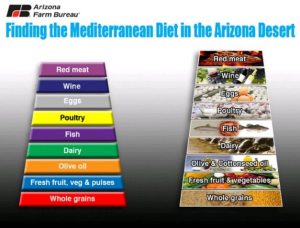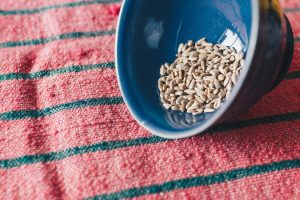By Julie Murphree, Arizona Farm Bureau Director of Strategic Communications
I can tell my sleep pattern has changed. I’m waking up earlier in the morning despite going to sleep around the same time each evening. I am not liking this, but am discovering it’s not unusual as you age. 
A recent study confirms this fact. The study revealed that aging messes with your sleep in some pretty sneaky ways. Each year, deep sleep takes a tiny hit, dropping by 0.13% to 0.14%, while light sleep creeps up by 0.18% to 0.23%—like a slow-motion swap you didn’t sign up for. The peripheral apnea-hypopnea index (pAHI) also shoots up as the years pile on, matching what earlier research has been shouting about. By 40, 10% of guys are wrestling with obstructive sleep apnea, while ladies hit that mark later, around 55—probably thanks to menopause crashing the party.
Here are some practical, no-nonsense tips for better sleep because who doesn’t want to catch some quality Zs?
-
Stick to a Schedule: Go to bed and wake up at the same time every day—even on weekends. Your body’s internal clock loves routine more than your grumpy cat does.
-
Ditch the Screens: Cut off phones, tablets, and TVs at least an hour before bed. The blue light tricks your brain into thinking it’s still daytime, and doomscrolling X at 2 a.m. isn’t helping.
-
Wind Down Right: Try something chill like reading a book (not a thriller), meditating, or sipping herbal tea. Skip the late-night espresso shots—caffeine’s a sleep thief.
-
Set the Scene: Keep your bedroom dark, quiet, and cool (around 60-67°F is ideal). Blackout curtains, earplugs, or a white noise machine can work wonders.
-
Watch What You Eat: Avoid heavy meals, spicy food, or too much liquid right before bed. A growling stomach or midnight bathroom runs are not your friends.
-
Move Your Body: Exercise during the day— even a brisk walk helps—but don’t turn into a gym rat at 10 p.m. Timing matters.
-
Limit the Booze: A nightcap might knock you out, but it trashes your deep sleep later. Trade it for warm milk or just call it quits early.
-
Nap Smart: If you’re a napper, keep it short (20-30 minutes) and before 3 p.m. Anything longer or later is basically stealing from your nighttime shut-eye.
I love a nap on the weekend and I don’t mind going beyond a 30-minute one. But if these tips ring true, I better dial back the long nap.





